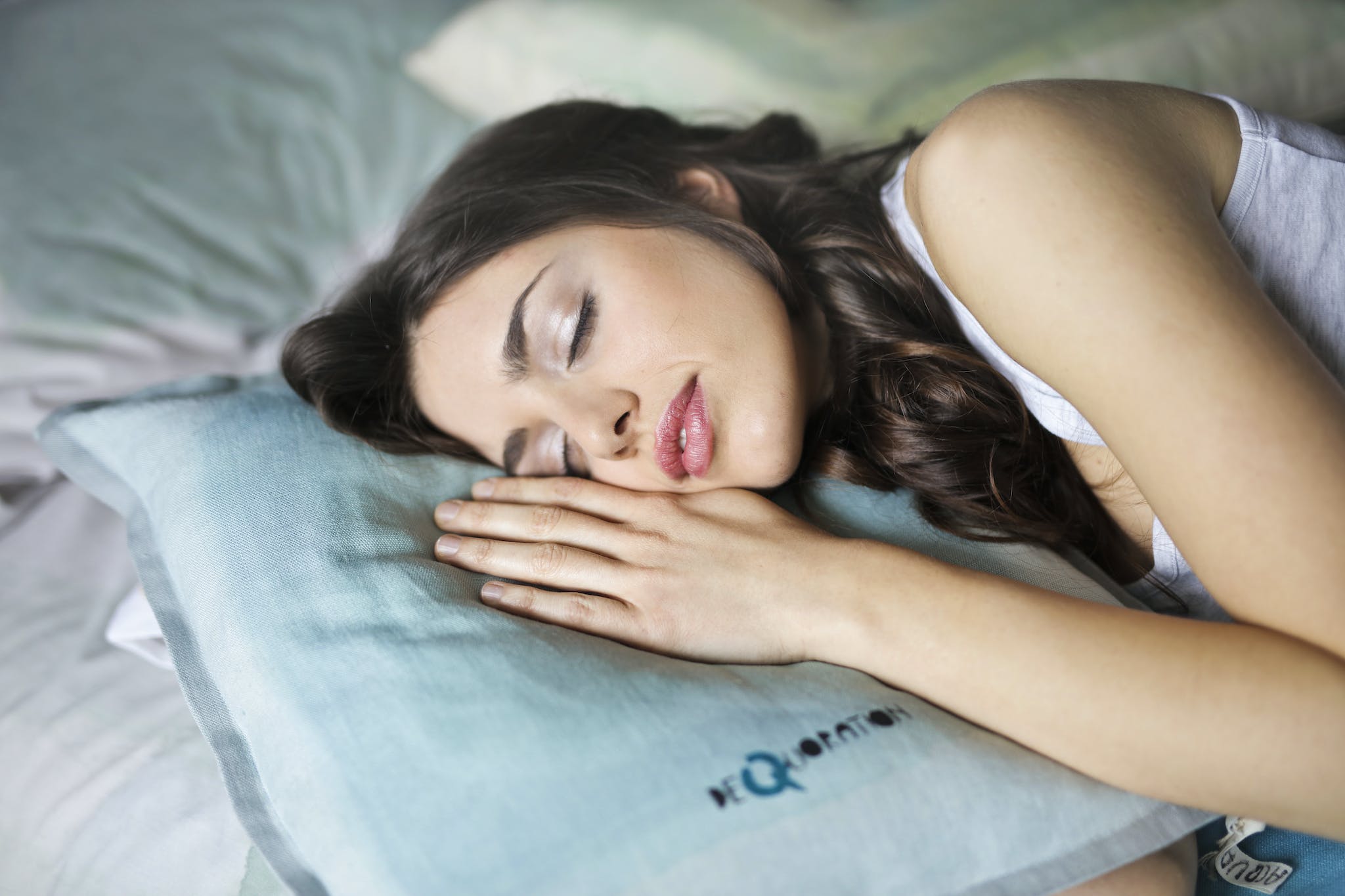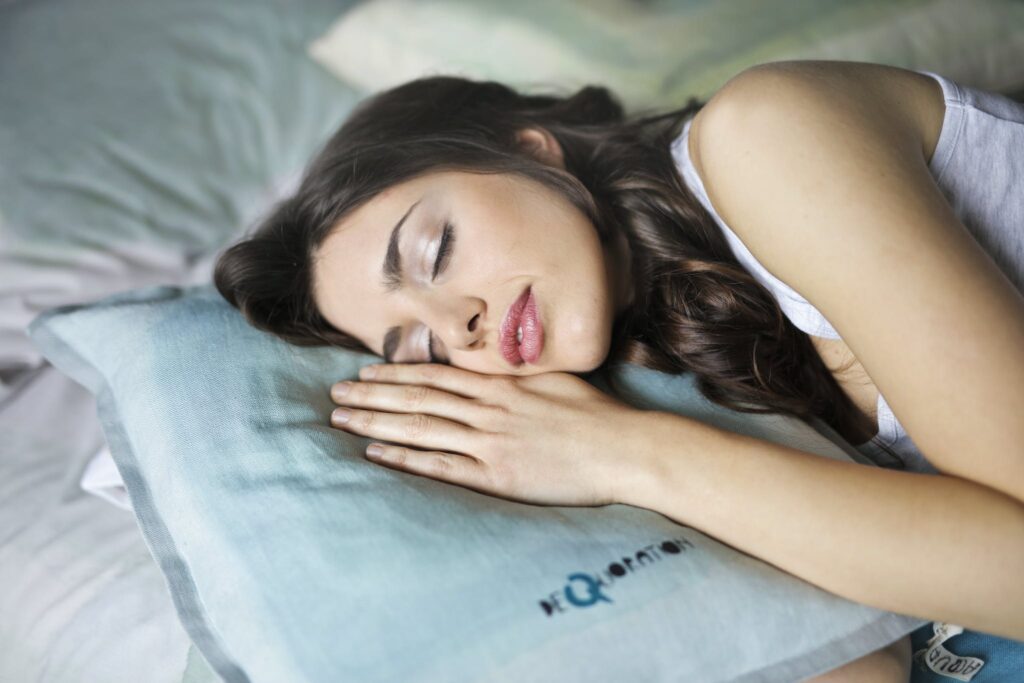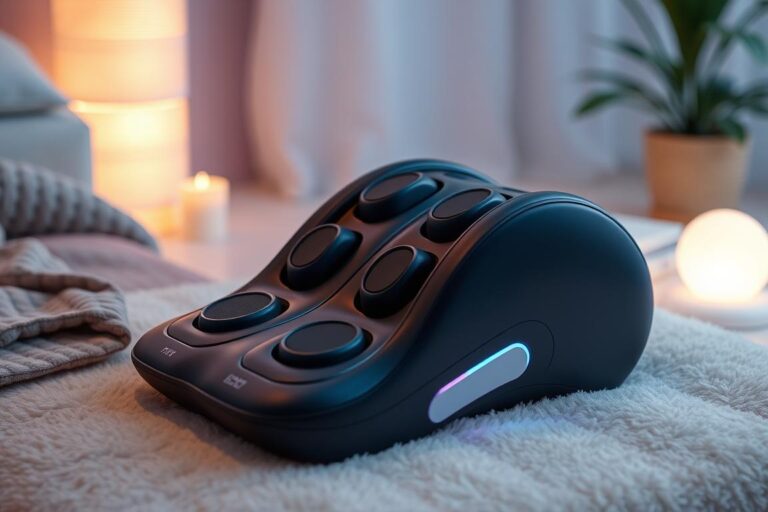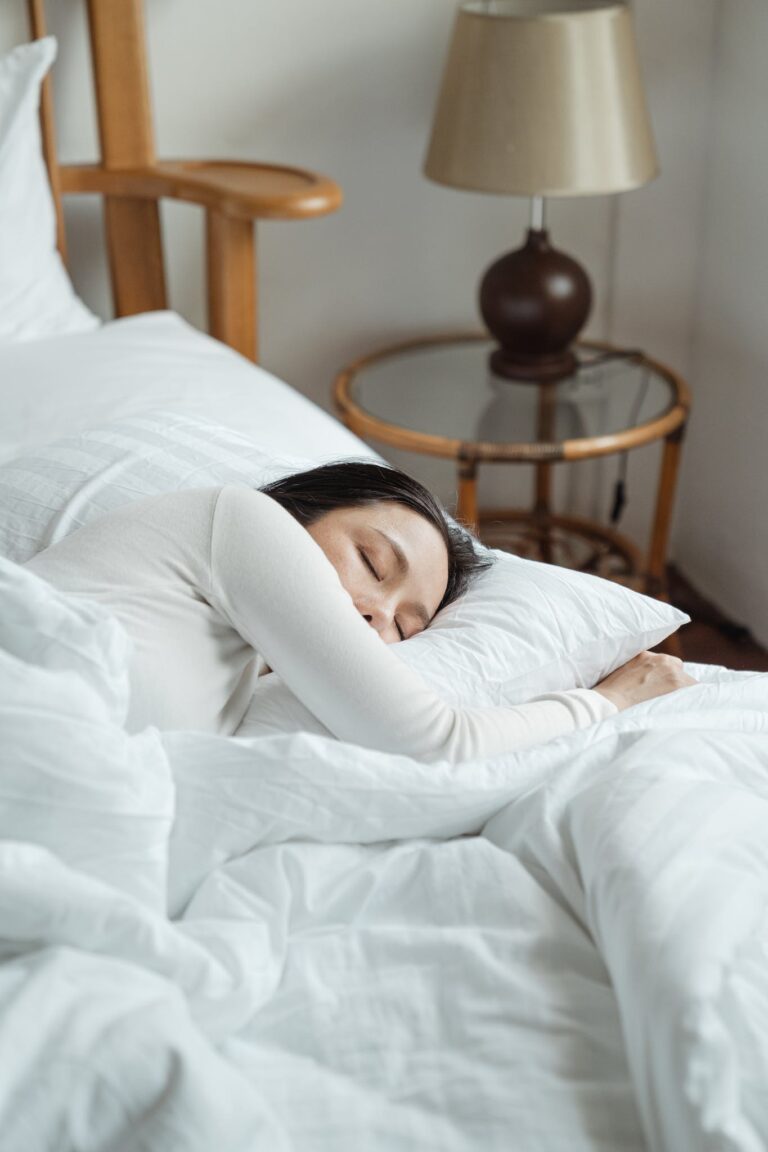The Ultimate Guide to Sleep Hygiene: How to Sleep Better Every Night

Understanding the Importance of Sleep Hygiene

Sleep hygiene refers to a set of healthy habits and practices that promote quality sleep and overall well-being. In today’s fast-paced and digitally connected world, the importance of sleep hygiene cannot be emphasized enough. Getting enough sleep and maintaining a proper sleep schedule is crucial for a wide range of physical, mental, and emotional functions.
Research has shown that lack of proper sleep hygiene can lead to a myriad of adverse effects on both physical and mental health. Chronic sleep deprivation has been associated with an increased risk of various health issues, including obesity, diabetes, cardiovascular disease, and impaired cognitive function. It can also weaken the immune system, making individuals more susceptible to infections and diseases.
Furthermore, poor sleep hygiene can affect mood, concentration, and overall productivity. It can contribute to feelings of irritability, anxiety, and depression, and impact daily activities such as work, school, and relationships. Understanding the importance of sleep hygiene is essential for individuals to prioritize their sleep and adopt healthy habits that promote restful and rejuvenating sleep each night.
Establishing a Consistent Sleep Schedule

Having a consistent sleep schedule is an essential aspect of maintaining a healthy sleep hygiene. When it comes to establishing a consistent sleep schedule, it is important to prioritize regularity and consistency in your sleeping patterns. This means going to bed and waking up at the same time every day, even on weekends.
By sticking to a consistent sleep schedule, you are helping to regulate your body’s internal clock, also known as the circadian rhythm. This internal clock plays a crucial role in determining your sleep-wake cycle and overall sleep quality. When you maintain regularity in your sleep schedule, your body will become more accustomed to falling asleep and waking up at the desired times, promoting a smoother and more efficient sleep routine. Additionally, a consistent sleep schedule can help improve your overall sleep quality and increase your chances of waking up feeling refreshed and revitalized.
To establish a consistent sleep schedule, it can be helpful to set a regular bedtime and wake-up time that allows for at least 7-9 hours of sleep each night. Make sure to consider your individual sleep needs and adjust your schedule accordingly. Creating a bedtime routine that includes relaxing activities, such as reading a book or practicing relaxation techniques, can also signal your body that it’s time to unwind and prepare for sleep. With time and consistency, your body will adapt to this schedule, making it easier to fall asleep and wake up at the desired times.
Creating a Relaxing Bedtime Routine
Creating a relaxing bedtime routine is essential for achieving quality sleep and overall well-being. It is important to establish a consistent routine that signals to your body and mind that it is time to unwind and prepare for rest. One effective strategy is to engage in activities that promote relaxation and reduce stress levels before bed.
One of the first steps in creating a relaxing bedtime routine is to set aside dedicated time for self-care. This can include engaging in activities such as taking a warm bath, practicing gentle stretching or yoga, or reading a book. Engaging in these activities helps to signal to your body that it is time to wind down and prepare for sleep. Additionally, incorporating relaxation techniques such as deep breathing exercises or meditation can further support relaxation and calm the mind. By consistently practicing these rituals before bed, your body will begin to associate these activities with sleep, making it easier to fall asleep and stay asleep throughout the night.
Another important aspect of a relaxing bedtime routine is to avoid stimulating activities and substances before bed. This includes avoiding the consumption of caffeine or nicotine close to bedtime, as these can interfere with your ability to fall asleep. Additionally, it is advisable to limit screen time and exposure to electronic devices such as smartphones or tablets, as the bright light emitted by these devices can disrupt your natural sleep-wake cycle. Instead, opt for engaging in activities that promote relaxation and calmness, such as listening to soothing music, practicing mindfulness, or using aromatherapy techniques.
Creating a relaxing bedtime routine requires consistency and discipline, but the benefits are well worth the effort. By incorporating activities that promote relaxation and avoiding stimulating activities before bed, you can improve the quality of your sleep and wake up feeling refreshed and rejuvenated each morning. Remember, everyone’s routine might be different, so it is important to find what works best for you and stick to it.
Designing a Comfortable Sleep Environment
Creating a comfortable sleep environment is essential for quality sleep and overall well-being. Your bedroom should be a peaceful sanctuary, free from distractions, noise, and clutter. When designing your sleep environment, consider the following factors.
First, focus on the mattress and pillows. A supportive and comfortable mattress is crucial for a good night’s sleep. It should provide adequate spine alignment and pressure relief. Similarly, pillows should be chosen based on individual preferences and sleeping positions. Whether you prefer a firm pillow or a softer one, the goal is to maintain proper neck alignment and ensure a comfortable sleep posture.
Next, pay attention to the ambient noise in your bedroom. Unwanted sounds, such as traffic or noisy neighbors, can disrupt your sleep. Consider using earplugs or a white noise machine to mask these disturbances and promote a more peaceful sleep environment.
Lastly, take into account the lighting in your bedroom. Exposure to bright lights, especially before bedtime, can interfere with your body’s production of melatonin, a hormone responsible for promoting sleep. Install blackout curtains or blinds to keep your bedroom dark and minimize external light sources. Additionally, using dimmers or soft lighting can create a relaxing atmosphere, signaling to your brain that it’s time to unwind and prepare for sleep.
By considering these factors and personalizing your sleep environment to suit your preferences, you can create a comfortable and conducive space for quality sleep. Remember, a peaceful environment sets the stage for better sleep and improved overall health.
Managing Light Exposure for Better Sleep
Light exposure plays a crucial role in regulating our sleep-wake cycle, also known as our circadian rhythm. The human body is naturally programmed to respond to light, with exposure to natural light during the day promoting wakefulness and alertness, and darkness triggering the release of melatonin, a hormone that helps regulate sleep. However, the presence of artificial light, particularly blue light emitted by electronic devices such as smartphones, tablets, and televisions, can disrupt this delicate balance and interfere with our ability to fall asleep and stay asleep.
To manage light exposure for better sleep, it is important to limit the use of electronic devices, especially in the hours leading up to bedtime. This can be achieved by setting technology-free zones in the bedroom and establishing a “digital curfew” where all screens are turned off at least an hour before sleep. This allows the body to unwind and transition into a state of relaxation, promoting the production of melatonin and facilitating a smoother transition into sleep. Additionally, investing in blue light-blocking glasses or using apps that filter blue light on electronic devices can help to minimize the impact of artificial light on sleep quality. By prioritizing the management of light exposure, individuals can improve the quality and duration of their sleep, leading to enhanced overall well-being.
Regulating Temperature and Humidity in the Bedroom
Maintaining optimal temperature and humidity levels in the bedroom is crucial for a restful and uninterrupted sleep. Extreme temperatures and excessive humidity can both negatively impact the quality of sleep, leading to discomfort and difficulties falling asleep or staying asleep throughout the night.
To regulate the temperature, it is recommended to keep the bedroom cool, ideally between 60 to 67 degrees Fahrenheit (15 to 19 degrees Celsius). This temperature range promotes the body’s natural drop in core temperature, which is necessary for initiating and maintaining sleep. Using a fan or air conditioner can be effective in achieving this comfortable temperature range. Additionally, adjusting the bedding, such as using breathable fabrics and layering with blankets, can help regulate body temperature and provide optimal comfort.
Maintaining appropriate humidity levels in the bedroom is also essential. Humidity levels should ideally be kept between 30 to 50 percent to prevent dryness or excessive moisture in the air. Dry air can lead to irritation of the nasal passages and throat, causing discomfort and difficulty breathing during sleep. On the other hand, overly humid conditions can create a breeding ground for allergens and dust mites, contributing to respiratory issues and potential sleep disturbances. Using a humidifier or dehumidifier, depending on the needs, can help regulate and balance humidity levels in the bedroom, promoting a pleasant sleep environment.
Avoiding Stimulants and Promoting a Healthy Diet for Quality Sleep
Stimulants and a poor diet can greatly hinder the quality of your sleep. Consuming caffeine, for example, can have a stimulating effect on the central nervous system and make falling asleep and staying asleep more difficult. It is advisable to limit or avoid sources of caffeine, such as coffee, tea, energy drinks, and chocolate, especially in the afternoon and evening hours. Additionally, it is important to be mindful of other substances that can disrupt sleep, such as nicotine and alcohol. While alcohol might initially make you feel drowsy, it can disrupt your sleep patterns and lead to more fragmented and less restorative sleep.
In order to promote a healthy diet for better sleep, it is crucial to maintain a balanced and nutritious eating plan. Opt for whole foods that are rich in vitamins, minerals, and antioxidants. Incorporate foods that contain tryptophan, an amino acid that can help promote sleep, such as turkey, chicken, fish, nuts, seeds, and dairy products. Additionally, consuming complex carbohydrates like whole grains, fruits, and vegetables can increase serotonin levels, which is a neurotransmitter that promotes relaxation and sleep. Avoid heavy meals close to bedtime, as they can cause discomfort and indigestion, making it harder to fall asleep. By making conscious choices about what you eat, you can positively impact your sleep patterns and overall well-being.
Incorporating Regular Exercise into Your Daily Routine
Regular exercise is an essential component of a healthy lifestyle, and it plays a crucial role in promoting quality sleep. Engaging in physical activity not only helps to maintain a healthy body weight but also has a profound impact on sleep duration and sleep quality. Several studies have shown that individuals who incorporate regular exercise into their daily routines tend to experience fewer sleep disturbances and enjoy better overall sleep.
When it comes to adopting an exercise routine for better sleep, consistency is key. Aim for at least 150 minutes of moderate-intensity aerobic exercise or 75 minutes of vigorous-intensity aerobic exercise per week, spread out across the days. Find activities that you enjoy and that suit your fitness level, whether it’s walking, running, swimming, cycling, or participating in group classes. By committing to a regular exercise routine, you can improve the efficiency of your sleep, enhance daytime alertness, and reduce the time it takes to fall asleep. However, it’s important to note that exercising too close to bedtime may have stimulating effects on the body, making it harder to wind down and relax for sleep. Therefore, it is advisable to finish your workout session at least a few hours before bedtime to allow your body temperature and heart rate to return to normal levels.
Managing Stress and Anxiety for a Peaceful Sleep
One of the key factors that can greatly impact the quality of your sleep is your level of stress and anxiety. When we experience high levels of stress, our bodies release hormones like cortisol and adrenaline, which can disrupt our ability to fall asleep and stay asleep throughout the night. Additionally, anxiety can create a racing mind, making it difficult to relax and quiet our thoughts before bed.
To manage stress and anxiety for a peaceful sleep, it is important to adopt healthy coping mechanisms. One effective strategy is to engage in stress-reducing activities before bedtime, such as practicing mindfulness or deep breathing exercises. These techniques can help calm your mind and relax your body, setting the stage for a restful night’s sleep. Additionally, finding ways to manage stress throughout the day, such as staying organized and prioritizing self-care, can also have a positive impact on your sleep hygiene. By proactively addressing stress and anxiety, you can support a more peaceful and rejuvenating sleep experience.
Limiting Electronic Device Usage before BedtimeLimiting Electronic Device Usage before Bedtime
Research has shown that limiting electronic device usage before bedtime can greatly improve the quality of your sleep. The blue light emitted by screens, such as those on smartphones, tablets, and laptops, can interfere with the body’s natural melatonin production, making it harder to fall asleep and stay asleep throughout the night. Additionally, the stimulating nature of electronic devices can keep the mind engaged and alert when it should be winding down for sleep.
To create a healthy sleep environment, it is recommended to avoid using electronic devices at least one hour before bedtime. Instead, try engaging in relaxing activities such as reading a book, practicing a mindfulness or meditation exercise, or taking a warm bath. By replacing screen time with calming activities, you can help your brain and body prepare for a restful night’s sleep. Remember, the goal is to create a physical and mental separation between technology and sleep, allowing your mind to enter a state of relaxation and ease.
Practicing Relaxation Techniques to Promote Better Sleep
Practicing relaxation techniques before bedtime can have a significant impact on your sleep quality and overall well-being. These techniques are designed to help calm your mind and release tension in your body, allowing you to enter a state of relaxation that is conducive to sleep.
One effective relaxation technique is deep breathing exercises. By focusing on your breath and taking slow, deep breaths, you can activate your body’s relaxation response, reducing stress and promoting a sense of calm. This technique is particularly helpful for individuals who experience racing thoughts or anxiety before bed.
Another relaxation technique that can promote better sleep is progressive muscle relaxation. This involves systematically tensing and then releasing each major muscle group in your body, from your toes to your head. By doing so, you can release muscle tension and achieve a state of deep relaxation, making it easier to drift off to sleep.
These relaxation techniques can be enhanced by incorporating other strategies such as aromatherapy or guided imagery. Aromatherapy involves using essential oils, such as lavender or chamomile, known for their calming properties. Applying these oils to your pulse points or using a diffuser in your bedroom can create a soothing environment that promotes relaxation. Guided imagery, on the other hand, involves visualizing peaceful and tranquil scenes to aid in relaxation.
Incorporating these relaxation techniques into your bedtime routine can help you unwind and prepare your body and mind for a restful night’s sleep. By dedicating just a few minutes each night to practice these techniques, you may find that you fall asleep more quickly and experience improved sleep quality throughout the night.
Addressing Common Sleep Disorders and Seeking Professional Help
Sleep disorders can have a significant impact on an individual’s overall well-being and daily functioning. When common sleep disorders such as insomnia, sleep apnea, and restless leg syndrome persist, despite implementing healthy sleep hygiene practices, it is essential to seek professional help. By consulting with a healthcare professional, individuals can receive a comprehensive assessment and diagnosis, leading to appropriate treatment options.
Addressing sleep disorders often requires a multidisciplinary approach, involving healthcare providers, sleep specialists, and sometimes even mental health professionals. Through a thorough evaluation of symptoms, medical history, and potentially conducting specialized sleep tests, healthcare professionals can create a personalized treatment plan. This plan may include lifestyle modifications, medication, therapy, or a combination of interventions aimed at improving sleep quality and overall sleep-wake patterns. Seeking professional help is crucial as it allows for a targeted and evidence-based approach to managing sleep disorders, enabling individuals to regain control of their sleep and enhance their overall quality of life.
Tracking and Monitoring Your Sleep Patterns for Continuous Improvement.
Monitoring and tracking your sleep patterns can provide valuable insights into the quality and quantity of your sleep, allowing for continuous improvement in your overall sleep hygiene. By accurately monitoring your sleep, you can identify any patterns or disturbances that may be negatively impacting your sleep and take steps to address them.
There are various methods and tools available to help you track and monitor your sleep patterns. One common approach is the use of sleep tracking devices, such as smartwatches or wearable fitness trackers. These devices can provide data on key metrics like sleep duration, sleep stages, heart rate, and movement during sleep. This information can be immensely helpful in understanding your sleep patterns and identifying any potential sleep issues.
Additionally, keeping a sleep diary can be a useful tool in tracking your sleep patterns. By recording your bedtime, wake-up times, and any notable events or disturbances throughout the night, you can gain a clearer picture of your sleep habits and identify any recurring patterns or issues. Over time, this data can help you make informed decisions and adjustments to optimize your sleep.
With a wealth of information at your fingertips, tracking and monitoring your sleep patterns can be an empowering tool in your journey towards better sleep. By identifying factors that may be affecting your sleep quality and making data-driven adjustments, you can continuously improve your sleep hygiene and achieve a restful night’s sleep. So, consider incorporating sleep tracking and monitoring into your efforts to optimize your sleep for a healthier, more rejuvenated you.
What is sleep hygiene and why is it important?
Sleep hygiene refers to a set of practices and habits that promote good sleep. It is important because it helps establish a healthy sleep routine, leading to better overall sleep quality and improved daytime functioning.
How can I establish a consistent sleep schedule?
To establish a consistent sleep schedule, try to go to bed and wake up at the same time every day, even on weekends. This helps regulate your body’s internal clock and improves the quality of your sleep.
What can I do to create a relaxing bedtime routine?
A relaxing bedtime routine can include activities such as reading a book, taking a warm bath, or practicing relaxation techniques like deep breathing or meditation. These practices signal to your body that it’s time to unwind and prepare for sleep.
How can I design a comfortable sleep environment?
To design a comfortable sleep environment, ensure your bedroom is cool, quiet, and dark. Invest in a comfortable mattress and pillows, and consider using blackout curtains or a sleep mask to block out any excess light.
How does light exposure affect sleep?
Light exposure, especially from electronic devices, can disrupt your sleep-wake cycle. It is important to limit exposure to bright lights before bedtime as they suppress the production of melatonin, a hormone that helps regulate sleep.
What role does temperature and humidity play in sleep quality?
Temperature and humidity in the bedroom can affect sleep quality. It is recommended to keep the bedroom cool and well-ventilated, as a slightly cooler temperature promotes better sleep. Humidity should be at a comfortable level to avoid discomfort during sleep.
How does diet and stimulant intake impact sleep?
Avoiding stimulants like caffeine and promoting a healthy diet are important for quality sleep. Caffeine can interfere with sleep, so it’s best to avoid consuming it close to bedtime. A balanced diet, rich in nutrients, can aid in better sleep.
How does regular exercise contribute to better sleep?
Regular exercise can promote better sleep by reducing stress and anxiety, improving mood, and regulating the sleep-wake cycle. Engaging in physical activity during the day can help you feel more tired and ready for sleep at night.
What are some effective strategies for managing stress and anxiety before bed?
Managing stress and anxiety before bed can be done through practices such as journaling, deep breathing exercises, or engaging in relaxation techniques like progressive muscle relaxation. Creating a worry-free environment and setting aside time to unwind can also help.
How does electronic device usage impact sleep quality?
The blue light emitted by electronic devices, such as smartphones and tablets, can suppress melatonin production and disrupt the sleep cycle. It is recommended to limit electronic device usage at least an hour before bedtime to improve sleep quality.
What relaxation techniques can I practice to promote better sleep?
Relaxation techniques like deep breathing, progressive muscle relaxation, or guided imagery can help relax the mind and body, making it easier to fall asleep. These techniques can be practiced before bed to promote better sleep.
When should I seek professional help for common sleep disorders?
If you consistently experience difficulties falling asleep, staying asleep, or have excessive daytime sleepiness, it may be beneficial to seek professional help. A healthcare provider or sleep specialist can help diagnose and provide appropriate treatment for sleep disorders.
How can I track and monitor my sleep patterns for continuous improvement?
There are various methods to track and monitor sleep patterns, such as using sleep tracking apps or wearable devices. These tools can provide insights into your sleep quality, duration, and identify any potential sleep disturbances, allowing you to make adjustments for continuous improvement.






